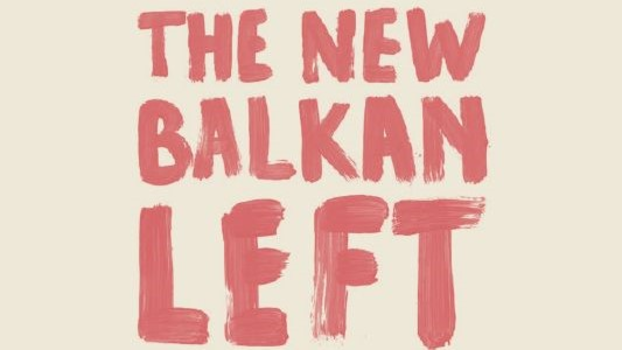
On the morning of 15 April 2009, students of the Faculty of Humanities and Social Sciences in Zagreb interrupted classes to declare a blockade of the premises. What began as just another student strike against the rampant commercialization of higher education would become the day the Left was born—or rather re-born—in the post-socialist Balkans.
Igor Štiks is a professor in the Faculty of Media and Communications in Belgrade and a research fellow in the Faculty of Arts at the University of Ljubljana. His publications include Nations and Citizens in Yugoslavia and the Post-Yugoslav States: One Hundred Years of Citizenship (Bloomsbury, 2015), Citizenship after Yugoslavia (Routledge, 2013), and Welcome to the Desert of Post-Socialism (Verso, 2015). His most recent novel W (Fraktura, 2019) is dedicated to a century of revolutionary struggles in Europe.
Krunoslav Stojaković is a historian and head of the Rosa-Luxemburg-Stiftung’s offices in Belgrade and Tuzla. His publications include “für eminent kommunistische Grundsätze”. Die politisch-kulturelle Avantgarde in Jugoslawien, 1960-1970, Revolutionäre Gewalt. Ein Dilemma (Mandelbaum, 2019), and 1968 in Jugoslawien. Studentenproteste und kulturelle Avantgarde zwischen 1960 und 1975. Gespräche und Dokumente (Dietz, 2006).
Inspired by a short-lived student occupation that had taken place in Belgrade in 2006, the students in Zagreb organized their struggle around a goal (free education), a method (blockade and occupation), and a form (plenary assembly, or the plenum). This cocktail, along with enthusiastic support extended immediately from a variety of civil-society, academic, intellectual, and cultural actors in Croatia as well as across the region transformed this student occupation into a political earthquake.
It would foreshadow all the hallmarks of the new Balkan Left: a broad alliance of left-wing and progressive actors, a struggle for the commons (in this case, education), the elaboration of anti-capitalist critique of the post-socialist condition, and last but certainly not least the use of horizontal and participative democracy. Anyone vaguely acquainted with the interminable “transition” of post-socialist societies towards free market economies and liberal democracies since 1989 will recognize at once how out of place and even shocking these events in Zagreb were to people in this region, where both the ideology and modern political movement of socialism were meant to be fated to the dustbin of history.
The collapse of the socialist bloc not only wiped entire political systems off the map, but also the organizational structures and cultural traditions of socialist and Communist workers’ movements. Literally overnight, the advocacy of these movements for solidarity and social equality—including the struggle for free health services, housing, and education—was subject to political, social, and cultural marginalization. The material symbols and ideology of former regimes were hastily erased through the destruction and removal of monuments, the re-naming of streets, and changes in public vocabulary.
Socialist regimes differed considerably when it came to their origins, political organization, social and economic policies, and methods of repressing dissent, but collectively they came to be seen as an unwanted historic break, an aberration alien to national traditions. The global zeitgeist of the 1990s, generally dismissive of socialist ideals, bordered on anti-communist hysteria in Central, Eastern, and Southeastern Europe. A rage against Stalinist paternalism and oppression also entailed a historical revisionism that in some countries was open, or only barely veiled, in its reaffirmation of collaborationist, fascist, and Nazi movements and personalities.
The domino-like collapse of socialist regimes eroded any notions of possible alternatives, or of a path for these societies now stuck between the defeat of state socialism and the triumph of neoliberal capitalism. No one spoke any longer, as former dissidents had, of “socialism with a human face”, as everyone hoped instead for “capitalism with a human face”—something closer to the image of Swedish social democracy in its heyday than to the deep social inequalities of British and American societies. Either way, the idea of a society based on solidarity and social and economic equality, and thus on a critique of capitalism, had no role to play in this new world order. The proclamation by neoliberalism that capitalism is the “only game in town” and the liberal delusion of the “end of history” both echoed instantly in parts of the Balkans, in Romania, Bulgaria, and Albania—and, after a series of devastating wars, in the countries that once formed Yugoslavia.
This new volume by Igor Štiks and Krunoslav Stojaković takes stock of the struggles, successes, and failure of the new Left in the Balkans over the last decade and introduces international readers to the organizations, actors, and coalitions leading its rebirth.